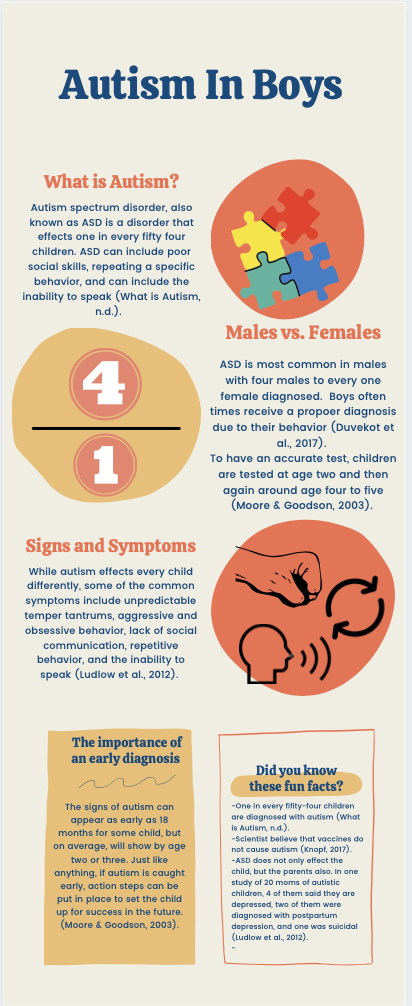Why routines matter help children with autism—according to an Autism Therapist
Why routines matter help children with autism—according to an Autism Therapist
Blog Article
Trick Signs and Signs to Identify in People With Behavioral Autism
When you come across somebody with behavior autism, recognizing vital indicators and signs is crucial. In addition, sensory level of sensitivities can lead to frustrating experiences.
Challenges in Social Interactions
When you interact with a person on the autism range, you may discover they struggle with social signs and interaction. These difficulties can make social interactions really feel frustrating for them.
Additionally, you might discover that they favor regimens and familiar setups, which can limit their determination to take part in brand-new social circumstances. They may talk regarding their passions in excellent detail without noticing if you're interested when they do involve. This can result in discriminatory discussions that leave you feeling disconnected. Understanding these challenges can aid you approach communications with empathy and perseverance, promoting an extra comfortable environment for both of you.
Problem With Verbal and Non-Verbal Communication

Non-verbal communication can be even much more difficult. You might see a lack of eye call or minimal usage of motions, which can make interactions feel awkward. Face expressions might not always align with the discussion, causing confusion about their feelings. Recognizing these indications is important, as it aids you far better support and engage with people on the autism spectrum. By comprehending their communication obstacles, you can promote more purposeful links and offer a more encouraging setting.
Repetitive Actions and Routines
Interaction difficulties usually go along with other indications of autism, such as repetitive actions and a strong choice for routines. You may notice that individuals with autism usually take part in details, repeated activities, like hand-flapping, rocking, or duplicating phrases. These actions can provide convenience and a sense of control in a frequently frustrating world.
When they adhere to a structured routine,Regimens are just as essential; many people grow. You may find that modifications to these routines can lead to substantial distress. If they have a daily routine of consuming morning meal at a details time or adhering to a certain course to institution, any interruption can create anxiety.
Recognizing these patterns helps you understand their habits and provide support. By accommodating their requirement for routine and allowing repeated activities, you can develop an extra comfy setting that relieves their challenges.
Sensory Sensitivities

Common Sensory Triggers
Sensory level of sensitivities can significantly impact every day life for people with autism, as specific stimuli often cause overwhelming responses. Typical sensory triggers include loud sounds, bright lights, and strong smells. You could discover that sudden audios, like alarms or alarms, trigger anxiety or distress. Fluorescent lights in stores can feel harsh and uncomfortable. Textures can additionally play a significant duty; rough textiles or specific food appearances may be intolerable for you. Furthermore, crowded places can overwhelm your detects, making it difficult to kick back or focus. Recognizing these triggers can assist you handle your environment better. By understanding what affects you, you can take actions to minimize discomfort and boost your daily experiences.
Behavioral Feedbacks Explained
Comprehending your behavior responses to sensory level of sensitivities is crucial, as they frequently expose exactly how you engage with the globe. You might discover that specific noises, lights, or structures bewilder you, leading to anxiety or discomfort. When faced with these stimuli, you might withdraw, cover your ears, or even respond aggressively. These reactions aren't just traits; they're your means of handling overstimulation. You may also locate on your own looking for specific sensory experiences, like deep stress or silent settings, to help ground on your own. Recognizing these patterns helps you understand your needs far better and can lead exactly how you interact them to others. By acknowledging your sensory sensitivities, you can work towards creating an environment that feels extra workable and comfortable for you.
Coping Techniques Review
Acknowledging your sensory sensitivities is just the first action; now it's time to discover coping techniques that can help you take care of those experiences successfully. Start by producing a sensory toolkit tailored to your demands. This can consist of noise-canceling headphones, fidget toys, or relaxing fragrances. Developing an organized regimen can also supply predictability, reducing stress and anxiety around sensory overload. When you feel overwhelmed, take breaks in a silent space to regroup. Exercising mindfulness techniques like deep breathing can assist ground you in the minute. Furthermore, connect your needs with those around you; having supportive friends and family can make a substantial distinction. Keep in mind, finding what works best for you may take time, so be open and patient to attempting new strategies.
Restricted Rate Of Interests and Focus
While lots of people create a wide variety of rate of interests, those with autism usually show limited rate of interests and an extreme focus on certain topics. You could see that a person with autism can invest hours diving right into their preferred topic, whether it's a particular type of train, a specific movie, or here a clinical principle. This get more info intense focus isn't just a leisure activity; it can come to be a main part of their identity and social communications.
You may discover that conversations focus on these passions, and they might battle to participate in wider topics. For them, these concentrated passions give convenience and a feeling of proficiency. While it is necessary to motivate exploration of brand-new topics, appreciating their passions is just as crucial. By recognizing and acknowledging these restricted interests, you can foster an encouraging environment where they really feel valued and recognized, enabling even more purposeful links and interactions.
Psychological Policy Troubles
Individuals with autism often deal with obstacles in emotional guideline, which can be affected by their extreme focus on particular interests. You may observe that when a person is deeply participated in a preferred activity, they can experience strong emotions, whether enjoyment or stress. When points don't go as prepared., this strength often makes it difficult for them to move equipments or manage their sensations - Autism Spectrum Therapies.

Irregularity in Developmental Milestones
When it involves developmental landmarks, you'll observe that individuals with autism often reveal a broad array of variability. Some might hit milestones on schedule, while others could lag behind or progression at a different rate. You might see a youngster excel in language skills yet struggle with social interactions. This incongruity can be complex, as conventional standards don't always use.
It's crucial to recognize that each individual's journey is special. Observing these patterns can help you comprehend their strengths and requires better.
Often Asked Inquiries
Just How Is Autism Detected in Kid and Adults?
To identify autism in kids and adults, experts examine habits, communication skills, and social interactions. If a private satisfies the criteria for autism spectrum problem., they read more commonly utilize standardized tests, meetings, and monitorings to identify.
Are There Various Sorts Of Autism Spectrum Disorders?
Yes, there are different kinds of autism range problems, consisting of Asperger's syndrome and prevalent developing disorder-not otherwise defined. Each kind differs in intensity and qualities, so understanding these differences can assist you better support people with autism.
What Therapies Are Effective for People With Autism?
When thinking about reliable treatments for people with autism, you'll locate alternatives like Applied Habits Analysis, speech treatment, and occupational therapy. Each strategy can help boost interaction, social skills, and daily operating tailored to specific requirements.
Can People With Autism Lead Independent Lives?
Yes, individuals with autism can lead independent lives. With the appropriate support, skills training, and sources, you can aid them establish self-sufficiency, take care of daily jobs, and grow in various settings, fostering their freedom.
Exactly How Can Family Members Assistance Enjoyed Ones With Autism?
You can sustain your loved ones with autism by producing an organized environment, urging their rate of interests, practicing persistence, cultivating communication, and promoting social abilities. Celebrate their achievements, no matter just how tiny, and develop an encouraging community.
Although numerous people on the autism spectrum can comprehend and make use of language, they usually face substantial challenges with both verbal and non-verbal interaction. Recognizing these signs is necessary, as it helps you much better support and involve with people on the autism range. You could notice that individuals with autism usually engage in specific, repeated actions, like hand-flapping, rocking, or repeating phrases.Sensory sensitivities can significantly affect day-to-day life for people with autism, as particular stimulations usually trigger overwhelming reactions.When it comes to developmental milestones, you'll notice that individuals with autism frequently reveal a vast array of irregularity.
Report this page